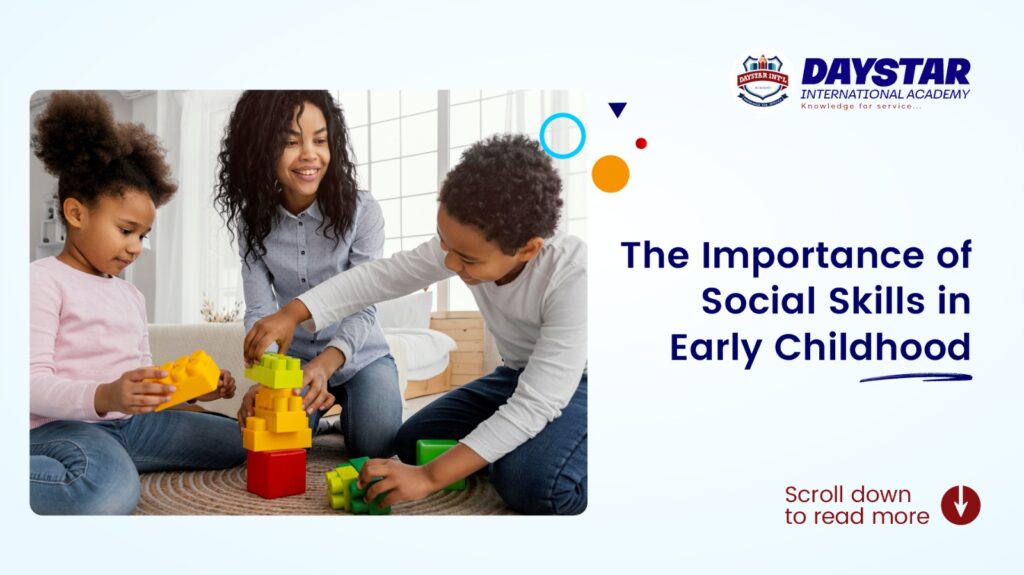
Social skills are the ways we interact with others—like talking, listening, sharing, and understanding feelings. For young children, these skills are key to getting along with friends, following directions, and feeling confident in social situations. Early childhood is the best time to learn these skills, as children are just beginning to understand how to communicate and connect with others. When parents and teachers encourage social growth, they help kids succeed in school, at home, and in life. Here are a few reasons why social skills matter for young kids:
1. Better Communication: Social skills help children learn how to say what they need, how they feel, and what they think. When kids can talk clearly, they can ask for help, solve problems, and share their ideas with others.
2. Making Friends: Kids who have strong social skills find it easier to make and keep friends. They know how to start conversations, play with others, and take turns. This helps them build strong, fun friendships that last.
3. Learning to Share and Work Together: Whether they’re playing games or working on projects, kids need to know how to share, take turns, and help each other. Social skills teach them how to be part of a team, which is important for both school and play.
4. Understanding Others’ Feelings: Social skills also help children learn empathy—how to understand and care about what others are feeling. When kids are kind and considerate, they can make stronger connections with their friends and family.
5. Solving Problems: When conflicts happen, kids with good social skills can talk things out and find solutions. Instead of getting upset or fighting, they know how to listen, understand, and fix problems in a peaceful way.
6. Building Confidence: As children get better at talking to others and making friends, they feel more confident in different situations. Be it meeting new people or joining a group, kids with social skills feel more comfortable and sure of themselves.
7. Building Self-Discipline: In a virtual learning environment, social skills help children develop self-discipline. They learn how to stay focused, follow instructions, and manage their time effectively without the structure of a physical classroom. These skills are key to staying engaged and completing tasks, even when learning from home.
8. Feeling Happy and Connected: Children who have good social skills often feel less lonely and more connected to others. These skills help kids feel supported and valued, which is important for their overall happiness.
Parents and teachers can help children by modeling good behavior, encouraging playtime with friends, and teaching kids how to understand and respect others’ feelings. Simple activities, like sharing toys, taking turns to answer questions in class or playing pretend, are great ways to help kids grow their social skills.
By working together to support children’s social development, both parents and teachers are setting them up for a happy and successful future.

